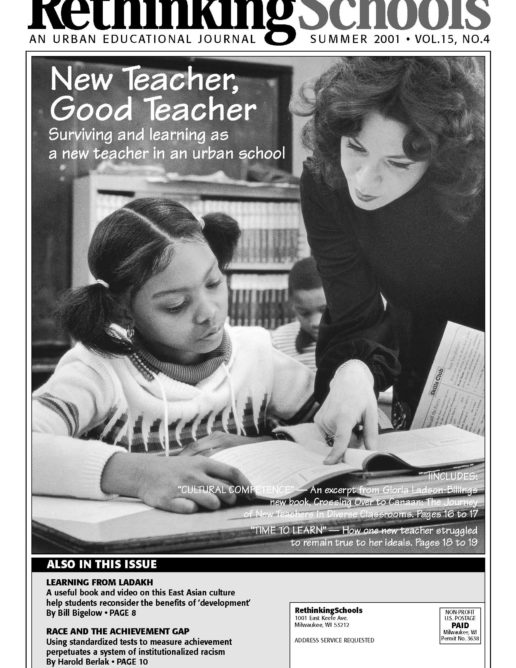Vouchers, Accountability, and Money
Voucher promoters ignore key lessons from Milwaukee, in particular that vouchers undermine funding for public education and allow private schools to skirt accountability for academic achievement.
President Bush has dropped vouchers as an essential component of this year’s federal education agenda — but voucher proponents across the country have not given up their fight. And whenever someone comes up with a new voucher plan, they inevitably come to visit Milwaukee, long considered “ground zero” in the voucher movement.
Milwaukee has more than a decade of experience with providing public dollars for private schools. This school year, approximately 9,700 Milwaukee students attend private schools at public expense; roughly two-thirds of the children attend religious schools. Three key lessons are emerging from the Milwaukee experiment.
Lesson Number One: Voucher schools are not accountable to the public.
At the same time that demands for accountability and testing are increasing for public schools, private voucher schools get off scot free. The voucher schools argue that because they are private, they get to play by different rules than the public schools (even though some voucher schools do not have a single student privately paying tuition.) As a result, voucher schools do not have to provide any data on test scores or academic achievement — or even measure their students’ progress if they don’t want to. Nor do voucher schools have to release basic data such as the racial or gender breakdown of their students.
Because there is no true public oversight or accountability, no one really knows how the voucher schools are performing. As state report last year pointedly noted, “some hopes for the [voucher] program — most notably that it would increase participating pupils’ academic achievement — cannot be documented.”
Private voucher schools are also allowed to circumvent basic constitutional protections such as free speech, due process, and equal protection. They also argue they are exempt from state law prohibiting discrimination on the basis of sex, sexual orientation and pregnancy, and marital or parental status.
Lesson Number Two: Vouchers divert money away from public schools.
The Milwaukee voucher program, which is costing $49 million this year, is not funded separately by the state of Wisconsin. Instead, the voucher money comes out of state dollars earmarked for public schools. Half the money comes out of state aid going to Milwaukee schools, half from school districts throughout Wisconsin.
Districts are able to make up that lost state aid — but here’s the catch. They are allowed to do so only by raising local property taxes. (This scheme was enacted by legislators who meanwhile complain about high taxes for public schools.) Furthermore, at the same time that public dollars are going to private voucher schools, the state has imposed spending limits on public schools. In the case of Milwaukee Public Schools, this led to $31 million in program cuts last year, and an estimated $14 million this year.
Because of the convoluted nature of Wisconsin’s school funding formulas, it is almost impossible to accurately assess the financial impact of vouchers statewide — especially if you don’t have a Ph.D. in finance. But this is the bottom line: vouchers are tied to state funding of public education. And, as everyone knows, there is a finite limit to taxpayer support for schools. When tax dollars go to private schools, it inevitably reduces the public’s willigness to shoulder increased tax burdens to pay for public schools.
Lesson Number Three: Parents do not want to abandon the public schools — they want them to work better.
In much-watched school board elections in Milwaukee this spring, two pro-voucher candidates were decisively defeated by candidates who made support for public education a cornerstone of their campaigns.
Voucher advocates also suffered crushing blows in state referenda last fall, when voters in Michigan and California squashed voucher initiatives in those states. The results were the ninth and 10th straight defeat of statewide voucher initiatives since the 1970s. In fact, no state voucher initiative has ever won when put to the voters.
Advocates of school reform find themselves in a complicated position. On the one hand, we must continue to expose the problems in public schools and demand they provide a quality education to all children. On the other hand, we must defend the institution of public education as a public good and expose voucher plans for what they are — essential building blocks in a conservative agenda to privatize schools and remove them from public oversight and responsibility.
It’s time that those seriously interested in education reform focus on proven programs such as improved teacher education, ongoing staff development, smaller classes, multicultural curricula, and adequate resources.
Former schoolteacher Frank McCourt, author of Angela’s Ashes and ‘Tis, puts it eloquently. Asked if he would be for vouchers he answered, “Only if you want to kill public education. That sucking sound you hear is the sound of public schools collapsing with the voucher system.”

